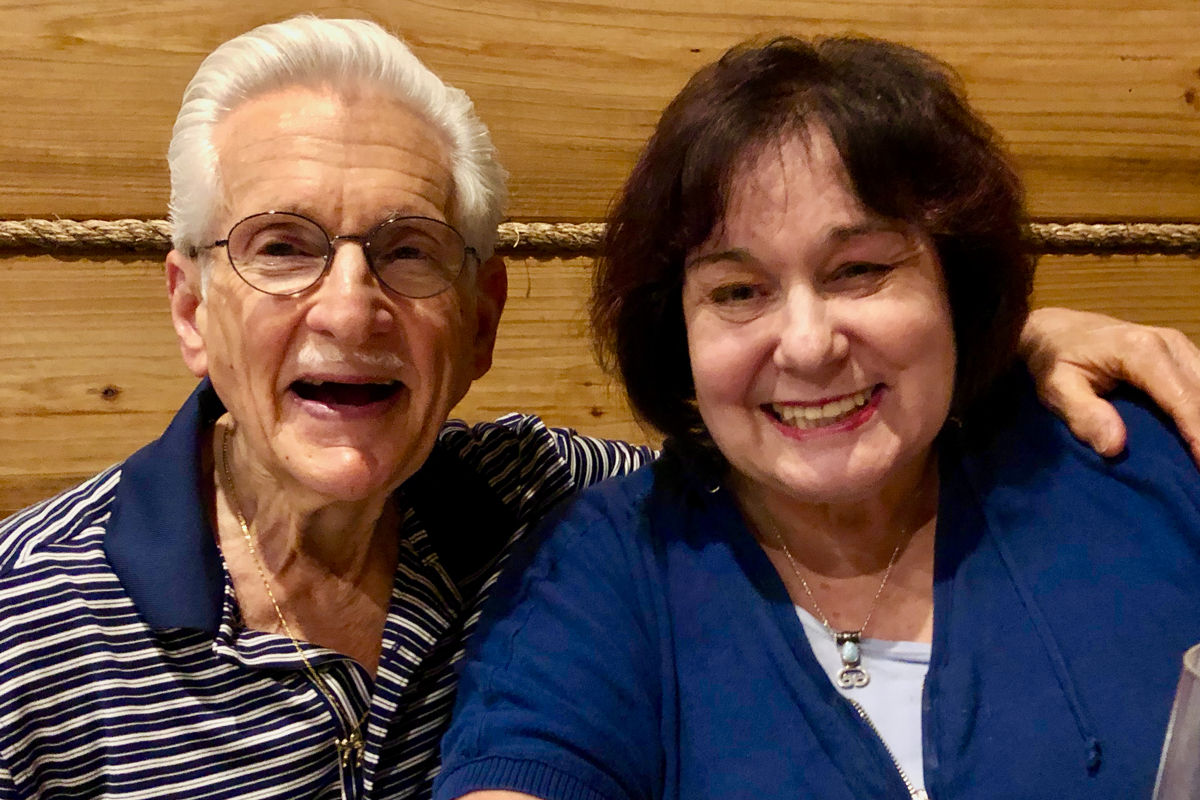When Rabbi Mark Goldman talks about his late wife, Meryl Markowitz Goldman (Ed.D. ’82), he borrows language from the book of Genesis.
“It says we’re made in the image of God,” he says. “That means we share the divine image, the spark of God. And that’s how Meryl approached her work, enabling young children to realize their potential.”
That spark is also why Mark believes that his marriage to Meryl — who died in May 2020 after a three-year battle with cancer — was bashert, a Yiddish word that means “meant to be.” In Meryl — a teacher, a curriculum specialist, an advocate for students with special needs, and a civil rights activist — Mark saw the same commitment he brought to his own calling.
Meryl and Mark met while Meryl was studying for her doctorate in special education at Teachers College. Meryl was working as assistant principal at a public elementary school near the temple on Long Island where Mark served as a rabbi.
“She was mainstreaming special ed children with gifted children,” he recalls. “They were trying an experiment to not just put them in a corner as ‘not normal,’ but include them in that world where they could thrive. I was fascinated.”
At the time they met, Meryl had completed all but her dissertation under her advisor and mentor, Frances Connor, Chair of what was then TC’s Department of Special Education. “Frances had assumed a mothering feeling about Meryl,” Mark says. “She was a member of the family.” Meryl’s grandmother made chicken soup when Frances was sick. Frances, in turn, decided Meryl should take elocution lessons to eliminate her Brooklyn accent. “Meryl could turn it on and off, because she was brilliant.”
Meryl completed her dissertation but, in an act of political protest typical of the time, she declined to attend graduation. Mark called Frances. “I said, ‘She did all this work, and she was one of your protégées, and she didn't go to get her doctoral certificate.’ So, Frances got it for me.” He had it framed for Meryl, and it still holds pride of place in the study of their home in Cincinnati.
For both Meryl and Mark, a commitment to equity necessitated a commitment to civil rights as well. As an undergraduate at SUNY Buffalo, Meryl had been president of the National Student Association, and she traveled to 48 states to help register voters — activity that got her arrested in Alabama. She invited the Rev. Dr. Martin Luther King, Jr., to the Buffalo campus to speak and introduced him to a full lecture hall. She toured the South with the Freedom Riders. Years later, a friend looking at a commemorative exhibition of photographs in the airport in Jackson, Mississippi, would find an image of Meryl aboard a Riders’ bus.
The elocution lessons Frances Connor insisted on came in handy in 1986, when Mark and Meryl moved to Cincinnati. There, Mark became Senior Rabbi at historic Rockdale Temple. Meryl reinvented herself as a contract educator for Planned Parenthood, conducting outreach with churches and community centers, as well as the county jail. “The convicts loved Meryl,” Mark says. “She’d go in there with her personality and brilliance, and she was never shy. They would call her ‘the rubber lady.’”
After three years, Meryl joined the staff at Rockdale. As director of the religious school, she wrote curriculum, hired and trained teachers, and designed every program. Over time, as Meryl became Director of Lifetime Learning (or “five-star general,” as Mark puts it) the program grew to include a nursery school, a Sunday school, a high school and adult education.
Once again, Meryl found ways to help students with special needs adapt within the mainstream. Mark remembers an autistic boy who was struggling to prepare for his bar mitzvah. The young man was very musical, so Meryl suggested they adapt the ceremony to allow him a song.
Between her work with Planned Parenthood and her efforts for Rockdale, Meryl became known widely within the Cincinnati church community. She frequently was invited to speak at other congregations, and she invited representatives of other faith traditions to participate at Rockdale.
The couple moved to Florida in 2004. Mark became a part-time rabbi with Temple Bet Yam in St. Augustine, which was housed temporarily in a rented facility. Meryl involved herself in the design and construction of a permanent home for the temple. Later, when Mark retired, Meryl reinvented herself again, becoming an accomplished painter and a docent at the Selby Gardens in Sarasota.
Meryl’s work inspired gratitude, as in the case of a former student from Long Island who “had been told he would never amount to anything because he had learning disabilities,” Mark recalls. When he became a successful businessman and was about to be honored for his philanthropy, “he flew Meryl and me up,” Mark said. At the gala dinner, he introduced Meryl as the teacher who had helped him realize his potential. Meryl received a standing ovation.
Attendance at Meryl’s funeral this past spring was limited by the COVID pandemic, but approximately 500 households tuned in online to participate. “She was absolutely beloved,” Mark says.
Despite her passing, Meryl Goldman continues to give: Her estate includes a bequest for Teachers College. “Her life’s work, generated by the inspiration she got at TC, was to help all children,” Mark said. “And everything that was in her life basket was in mine, also.” — Justin Harmon
